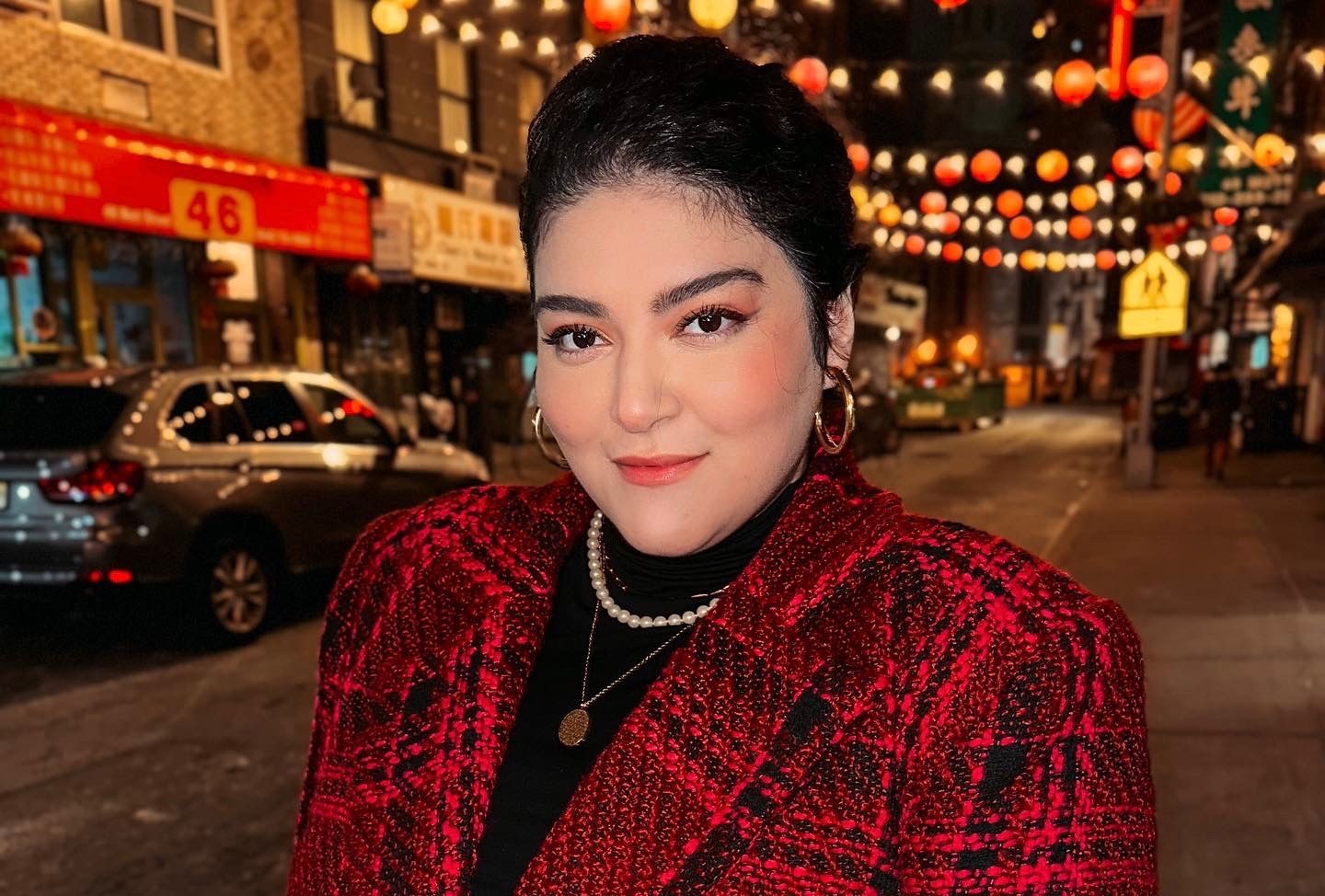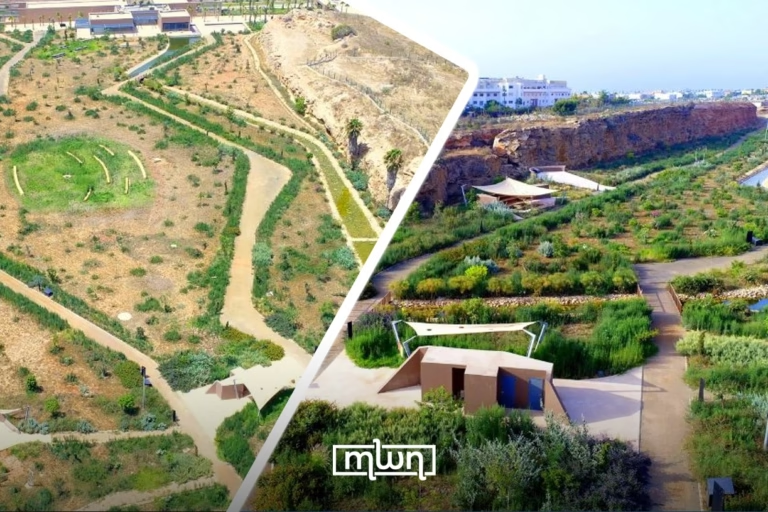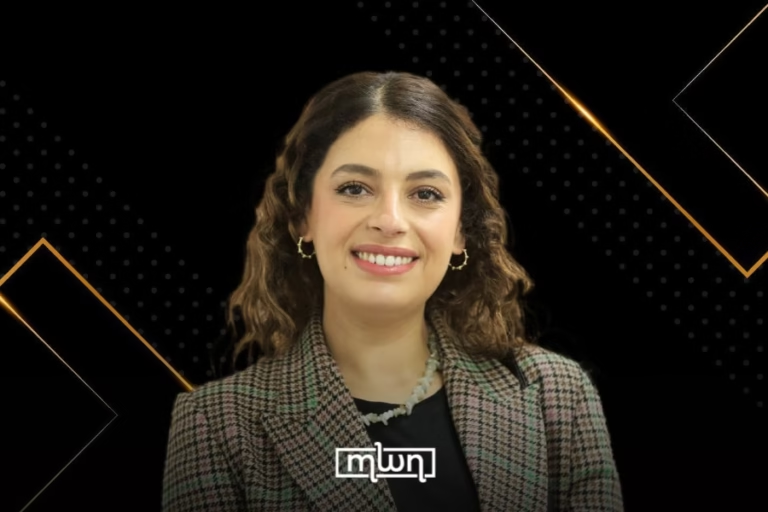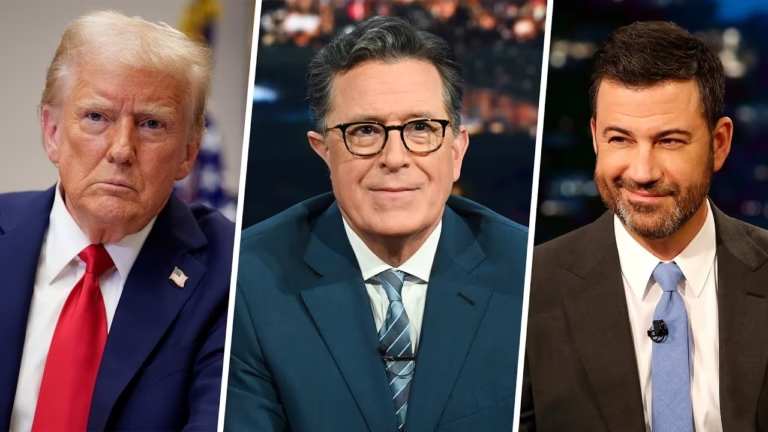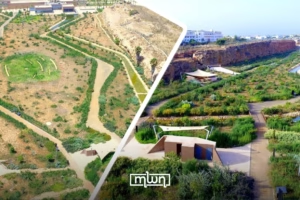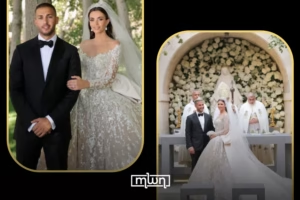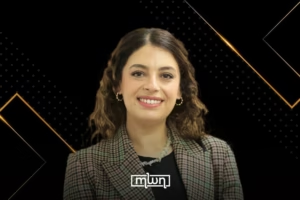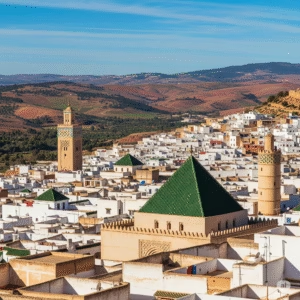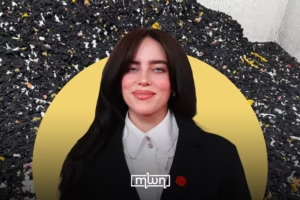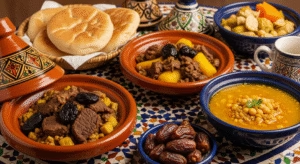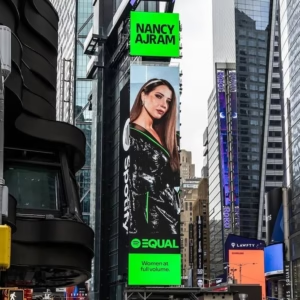Donning a white blouse, a young woman sits between an empty white table and an unadorned white wall, the cold palette at once angelic and funereal. She takes a deep breath and gazes into the eyes of her unseen questioner.
The 2019 short film “Amal,” written and directed by Taha Aziz, co-produced by Angie Nicholas and US-based Moroccan filmmaker Soukaina Alaoui El Hassani, who was also the assistant director, features a young Tunisian woman navigating America’s unforgiving immigration system, interweaving scenes of her tumultuous life and her citizenship exam. With her questioners off-screen, she is at once looking into their eyes and the camera — the audience.
“Amal” combats Western media’s flawed and stereotyped representation of Arabs, Muslims, and indigenous North Africans, especially women.
The enchantment of film
Alaoui El Hassani grew up in Casablanca, where her father owns a movie theater. So to her, film and television are a “wonderful place of escapism” where she went on “amazing, fantastical adventures,” she told Morocco World News.
She was in awe of the characters who keep the same core but change in the course of the movie from a flawed person to someone who settles in a new world. In the same way, she loves filmmaking because the process is “an adventure that’s filled with a ton of self reflection” as the creator grows alongside the character.
Another reason Alaoui El Hassani chose filmmaking is that she disagreed with the Western media’s portrayal of Muslims as “one of two things: we are either invisible victims that need some Western white savior or we are the villains.” Hoping to be an ambassador for her people, she went to university in the US and studied film at New York University.
Today, Alaoui El Hassani is an award-winning producer with a diverse portfolio, including independent short films and video news for CNN, and production-coordinator for commercials for Coca-Cola, Chevrolet, and Planned Parenthood as part of Virtue, the Vice Media Group’s creative agency.
As a producer, Alaoui El Hassani shapes films from inception of idea to festival premiere with the double role of logistics and creative decision-maker. For the former, she takes on tasks such as recruiting cast and crew, booking equipment and accommodations, and setting the schedule. For the latter, she has the choice to make artistic decisions alongside the film’s director.
For her 2023 short indie film “Lapse,” for example, Alaoui El Hassani collaborated with writer and director Katie Colwell. Often they engaged in creative discourse that resulted in an eventual consensus that elevated the film’s artistry, she said.
 Soukaina Alaoui El Hassani working on the set of “Lapse” (2023)
Soukaina Alaoui El Hassani working on the set of “Lapse” (2023)
An immigrant in an established world
As an immigrant to America, Alaoui El Hassani faces challenges in the film industry, the foremost of which is funding.
“You come to this country and you don’t really have a network, so you have to build it from scratch,” she said. “That’s hard because everybody else has a head start: their parents know people who provide them with money.”
Alaoui El Hassani learned to creatively problem-solve by reaching out to strangers and applying for fiscal sponsorship and grants.
“Because of that desperation from the lack of a network, you learn to be extremely social and open and collaborative,” she said. “You find your niche faster than others usually do because it comes from a place of desperation — the word ‘desperation’ has such a negative connotation but you get so much done when you don’t have certain resources available to you. We [as immigrants] shouldn’t be in a place of desperation to begin with, but I am making the best out of the situation. ”
Another aspect of immigrant life is dealing with microaggressions, xenophobia, and racism.
“The reality of the matter is, there’s a chance you’re going to get blacklisted in the beginning of your career, so sometimes you have to keep your head down, nod, smile, and listen,” Alaoui El Hassani said. “It’s exhausting.”
But the shared struggles of immigrant filmmakers also foster a strong community, she said. “So many great stories have come from the adversity people of color face; unfortunately in a perverse way, that’s what brings us together.”

Soukaina Alaoui El Hassani working on the set of “The Color of Mandarins” (2020).
The power of imperfection
One such story is “Amal,” which highlights how dilapidating and divisive the American immigration system is to many Arab families. Through Aziz’s short film, Alaoui El Hassani pushes for strong female leads trying to take control of their lives.
“They are not victims but are victimized by the West,” she said. “I want to elevate Muslim women and indigenous North Africans to a caliber of complexity, not only highlighting our tough experiences but also to tell the Western world that we’re here.”
Aziz’s protagonist in “Amal” is indeed complex. She smokes and gets into street fights, but at the same time tries her best to maintain a close-knit family and curb her brother’s drug habits.
“We’re not monoliths. We’re so perfectly flawed and Western writers never got it right because they don’t understand our experience and they don’t allow space for us to tell our stories,” Alaoui El Hassani said.
She explains that if “Amal” features a predominantly white cast, then no one would blink an eye at the family’s flaws because that’s a normal American family. But a minority protagonist gets tricky because marginalized communities already face prejudices.
“Dirtying these characters a little bit and giving them imperfections is what makes them great characters. You’re rooting for them even though they’re flawed,” she said.

Soukaina Alaoui El Hassani working on the set of “Fix” (2022).
Film as advocacy
Alaoui El Hassani continues to portray the complexity of the Southwest Asian and North African region in the documentary “Children of Sin” to be released in fall 2023, this time as a director.
“Children of Sin” highlights unwed mothers in Morocco and the statelessness of their children, inspired by Alaoui El Hassani’s own upbringing by nannies and housekeepers who had to give their illegitimate children to family and friends so they could make money to support them.
“I thought that was so unfair, so I wanted to use my position of privilege in Morocco to give them a voice,” Alaoui El Hassani said.
With the help of Solidarite Feminine, a non-profit organization founded by Aicha Ech Chenna, the film follows three unwed mothers who were ousted from their homes with no infrastructure to help them or their children, who get branded for life as illegitimate children that don’t have the same rights as regular Moroccan citizens.
“These women can be prosecuted for sex work even though some were assaulted or some men lied to them about being married. Blame is always at the woman’s door,” Alaoui El Hassani said. “I want to be part of the movement that brings changes to honor these nannies who were mothers to me when they couldn’t be mothers to their own children.”
“Children of Sin” is a social critique of Morocco’s Penal Code Article 490, which criminalizes extramarital sex. At the same time, the film also highlights good people in Morocco like Aicha Ech Chenna, the lawyers, the social workers, and the other benevolent people who wanted to help unwed mothers and their children.
Alaoui El Hassani’s views may not always align with the majority opinion in Morocco. Her commercials for Planned Parenthood, for example, advocate for abortion and the LGBTQIA+ community, both of which are illegal in her home country.
She said that she disagrees with a lot of the social conversations around abortion and LGBTQIA+ legality in Morocco and believes in reform, but she knows that the country is doing its best after having undergone so much postcolonial trauma.
“While some of my opinions may be informed by the West, I allow space for other opinions to live as well. It’s not my place to tell people or governments what they can or can’t do, but that does not mean that I will not advocate for what I believe in,” she said. “We’re growing. We’re changing. We’re evolving. We have to give time and space for that to happen.”

